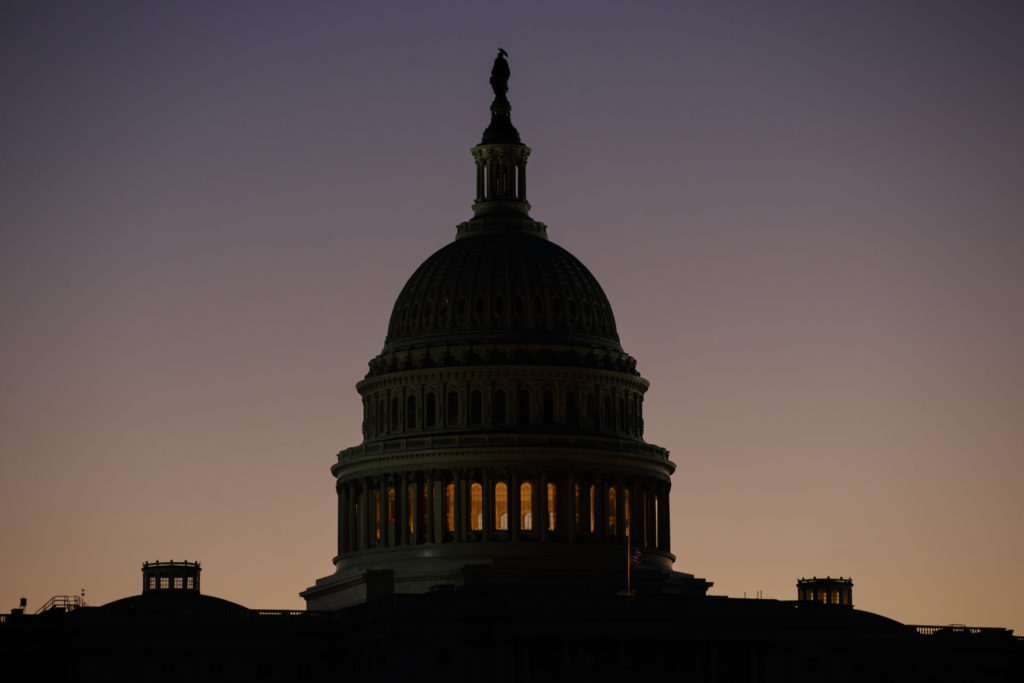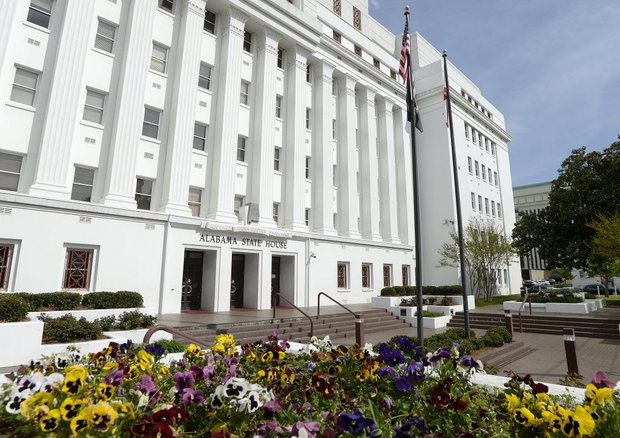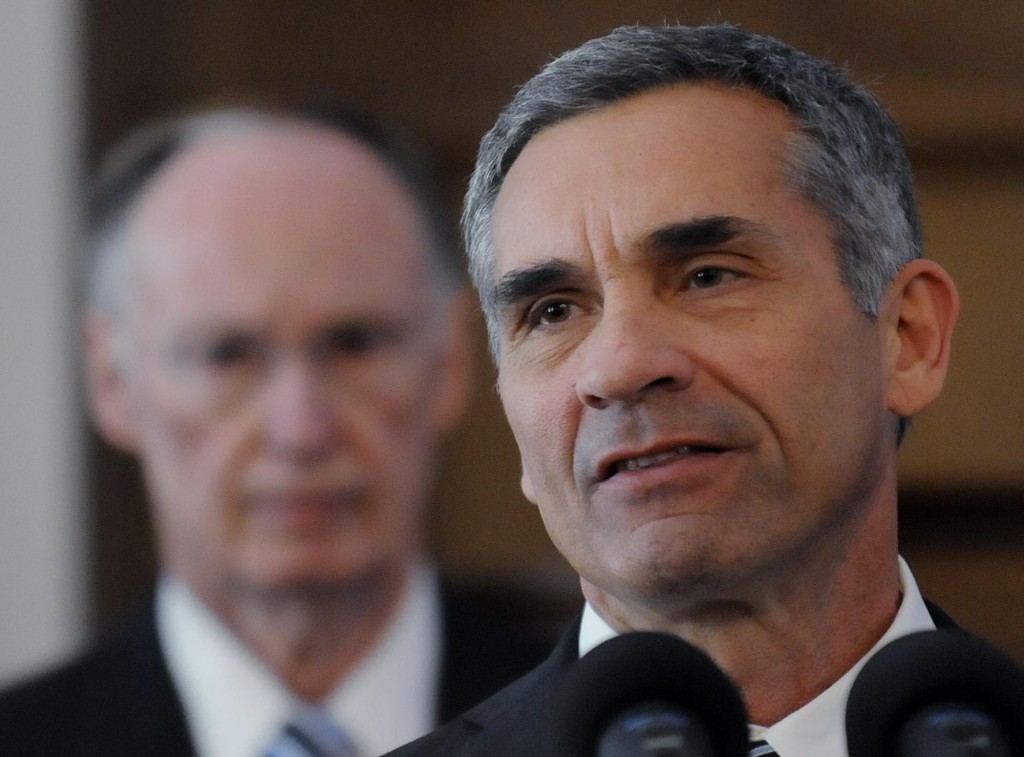Alabama congressional delegation largely supportive of Benghazi Select Committee

In the wake of recent news that former Secretary of State Hillary Clinton has agreed to testify before a U.S. House Select Committee investigating the 2012 attacks on an American compound in Benghazi, some Republican members of Congress are licking their chops at the prospect of getting a good crack at the 2016 Democratic presidential frontrunner over an issue that remains on the front burner for conservatives. Among them is U.S. Rep. Martha Roby of Alabama’s Wiregrass and Montgomery-based 2nd Congressional District. Roby is one of seven Republican members chosen for the committee. “It doesn’t surprise me that the Clinton lawyers want to limit her testimony,” Roby told Alabama Today on Tuesday, responding to corollary news that Clinton has refused to testify twice as requested by the committee, conceding to only one hotly anticipated appearance. “But, remember, it was her decision, not ours, to set up a secret email system in a calculated attempt to flout government transparency requirements. And there are many legitimate questions that remain unanswered.” She expressed her enthusiasm that South Carolina U.S. Rep. Trey Gowdy — who has been vocal in his criticisms of Clinton over Benghazi — may get to oversee a panel devoted to extracting answers from the former New York senator in light of her use of a private email address while serving on President Barack Obama‘s Cabinet. “I know that Chairman Gowdy is taking this offer into consideration and we will see what happens going forward. Chairman Gowdy has been a deliberate, effective leader of this Select Committee and we are behind him 100 percent,” Roby said. U.S. Reps. Bradley Byrne, Mike Rogers, Robert Aderholt and Mo Brooks — Republicans all — each voted “yea” and co-sponsored the federal legislation that created the committee. Democrat Terri Sewell, for her part, voted against it. Rep. Gary Palmer wasn’t yet elected when the House created the Select Committee. He did tell Birmingham talk radio host Matt Murphy in March he thinks “we should subpoena the server and see what’s on it.” Palmer also told the Birmingham Morning News, “I have zero confidence that this Justice Department will do anything under Obama [concerning Clinton’s emails].”
Ronda Walker: “We are the change this world needs, God through us!”
In 1952 the U.S. Congress passed legislation to set aside a National Day of Prayer, no particular day was designated, individuals were simply encouraged to pray for the nation on a day other than Sunday. During the Reagan administration, the National Day of Prayer was established as the first Thursday in May. Thursday marked the 64th anniversary of the National Day of Prayer. The city and county of Montgomery recognized the day with a community wide prayer breakfast. A crowd of several hundred gathered at the Activity Center on Dexter Avenue in downtown Montgomery for a time of prayer organized by His Vessel Ministry. The crowd included individuals with titles such as governor, justice, mayor, commissioner, and sheriff. But there were also those who enjoy the title of pastor, bishop, priest, Sunday school teacher, choir director, neighbor, and friend. Individuals from across the area, from all walks of life, gathered with one purpose: to lift prayer and praise to God. Pastor Kyle Searcy of the Fresh Anointing House of Worship encouraged the crowd to praise God first and foremost, in every situation and circumstance. Jesus himself modeled the concept of praise by beginning The Model Prayer with words of praise to the hallowed name of God. Prayers were said for our state and nation, for our military, for our firefighters and law enforcement officers, and for our elected officials. The time of worship concluded with Alabama Gov. Robert Bentley, Montgomery County Commission Chairman Elton Dean, and Montgomery Mayor Todd Strange reading the first three chapters of Genesis to start a reading of the Bible that will continue the next three days at the Capitol. God is great, greatly to be praised and that was evident at the Prayer Breakfast. But will it be evident tomorrow? As we awaken and are immediately bombarded with negativity from our television, radio, and everyday conversations will we remember the true source of peace and power? Or will we continue to look to the world for answers. If only we had better leadership. If only we had more money. If only our schools were better. If only we didn’t have crime. If only there were no drugs, poverty, homelessness. If only. But what does God say? He tells us that in this world we will always have tribulation, but he has overcome the world. He doesn’t waste his time wishing if only, instead he looks to the Christians for the change this world needs. In Chronicles, God says, “If my people, who are called by my name, will humble themselves and pray and seek my face and turn from their wicked ways, then I will hear from heaven, and I will forgive their sin and will heal their land.” God’s people are the answer, but too often we allow ourselves to become the problem. Instead of shaking our fists wishing others would change, we must get on our faces in daily prayer and praise. We are the remnant: We are the change this world needs, God through us! Ronda M. Walker is a Montgomery County commissioner.
Prison overhaul bill near final passage

The Alabama Legislature could give final approval to sweeping changes to sentencing and probation standards in an effort to relieve crowding in state prisons. The Senate-passed bill was on the House debate agenda for Thursday. Alabama prisons house nearly twice the number of inmates they were originally designed to hold, a crowding level that state officials say is both dangerous and puts the state at risk of federal intervention. The bill aims to steer low-level offenders away from prison and create a new Class D felony class. It also seeks to increase supervision on former inmates as they are released from prison. The legislation was put together by a prison reform task force with help from the Council of State Governments. Republished with permission of The Associated Press.
House OKs Tim Tebow Act to allow home-schoolers into public school athletics

Rep. Mike Ball’s proposal to allow children in home schools to participate in athletics at their zoned public school passed the House on Thursday. House Bill 236, known as the Tim Tebow Act, allows children taught at home to play on interscholastic teams so long as they follow the same behavior and academic standards as public school students. That provision was a sticking point in the debate over allowing virtual schools in Alabama. During floor debate on Thursday, Rep. Mary Moore revisited her concerns that children educated in home schools would be allowed to “take advantage” of the public school system in order to get college scholarships. The bill is named for Heisman trophy winner Tim Tebow. Tebow’s parents home-schooled all five of their children from kindergarten through high school. Tebow then received an athletic scholarship to attend the University of Florida.
On anniversary of Lurleen Wallace’s passing, still no portraits in rotunda
May 7 marks the anniversary of the death of Gov. Lurleen Wallace, the only woman governor in Alabama history. For State Auditor Jim Zeigler, it also marks the lapse of an important deadline: Zeigler had hoped to rectify what he says was a historic wrong, when two official state portraits of Wallace were removed from the Capitol rotunda, contrary to state law that dictates they remain there “in perpetuity.” “This was a wrong that needs to be righted,” Zeigler said at the River Region Republican March meeting in Montgomery on Wednesday. “We need to preserve our state’s heritage. These politically correct government officials want their own version of history instead of what actually happened.” “My goal was to have the portraits returned to their historical place by May 7, the day Gov. Lurleen Wallace died,” he said. “That day is here, and still the portraits remain banished from where they historically and legally were.” A 1983 joint legislative resolution demands that all state portraits remain in the rotunda. But former Director of Historic Sites Dr. Stephen McNair took the liberty of removing them in January, placing them instead in a less prominent place on floor down near a infrequently trafficked hallway, where visitors are less likely to see them. Zeigler had filed a formal complaint to McNair, but the historian left his job with the state in the interim. Zeigler has followed up with his successor’s office, but was not able to get enough traction on the issue to replace the portraits before the symbolic May 7 deadline.
Budget panel OKs cigarette, business tax increase

A budget committee on Wednesday approved more than $100 million in tax increases — including a 25 cent per pack increase in cigarette taxes — that are part of a House GOP plan to address a looming state budget shortfall. The House Ways and Means General Fund Committee approved the bills in rapid fashion with little debate, the day after House Republicans announced support for a mix of $151 million in taxes and fees combined with various cost-cutting measures. “We haven’t presented anything that is broad-based. It’s pretty targeted,” Committee Chairman Steve Clouse, a Republican of Ozark, said after the meeting. Clouse said House members thought it their responsibility to try to address the budget problem even though Senate support for their ideas is unclear. Republicans’ budget solution is largely dependent on bills sponsored by Democrats. A bill by Democratic Rep. Patricia Todd of Birmingham would raise the raise the cigarette tax by 25 cents per pack. The increase would generate an estimated $60 million. The second largest revenue generator is a bill by Rep. Elaine Beech, a Chatom Democrat, that would raise the business privilege tax for large businesses. The bill would do away with the tax on about 107,000 small businesses but increase the maximum tax on larger businesses. The change would bring in an estimated $39 million. The bills are expected to come up for debate Tuesday in the full House of Representatives. “I’m sure there will be vigorous debate from all sides,” Clouse said. Gov. Robert Bentley has argued that nothing less than $541 million in new revenue is needed to address the state’s budget problem. Bentley on Tuesday said he applauded House members “for agreeing with me that tax increases are needed to address the revenue shortfall in the General Fund.” But he said the House proposal raises only a fraction of the amount needed. Clouse said he thought the House proposal was “fairer.” Bentley’s proposals included raising the cigarette tax by 82 cents per pack and increasing the sales tax on cars from 2 percent to 4 percent. “It was just too much. You talk about a $30,000 vehicle, just for the average person that’s $600,” Clouse said. The committee also approved bills to raise the tax on automobile rentals from 1.5 to 2 percent. The change would raise an estimated $6 million. Another approved bill would increase the title fee on automobiles from $15 to $25. The change would raise an estimated $14 million. The only contentious debate came as Democrats criticized a proposal to require two furlough days for state employees next fiscal year. Montgomery Rep. John Knight, a Democrat, said he was not for balancing the budget “on the backs of poor state employees.” Beech said if lawmakers require that, they should also cut their own pay by two days. Part of the House Republican budget solution took an initial stumble out of the starting gate Wednesday morning. The House Ways and Means Education Trust Fund Committee on Wednesday rejected a bill that would change the state tax on lubricating motor oil. The bill would replace the current excise tax of a flat 6 cents per gallon with the state’s 4 percent sales tax. It is expected to bring in $10 million of the $151 tax package. A second committee meeting was quickly called for Thursday morning. “I think there was a probably a misunderstanding about the actual numbers involved there so that will be back up in committee tomorrow,” Clouse said. Republished with permission of The Associated Press.
Opponents of “religious freedom” bill warn of discrimination

Opponents of a bill that would allow Alabama probate judges and ministers to refuse to marry gay couples on religious grounds say the legislation could open the door to broader discrimination. The Senate Judiciary Committee on Wednesday heard passionate testimony about the bill that the sponsor says came about after a brief period of legalized gay marriage in Alabama. Proponents say the bill would protect religious beliefs but opponents say it opens the door to broader discrimination of same-sex couples and other groups. Bill sponsor Rep. Jim Hill says he brought the bill after a federal judge ruled that Alabama’s gay marriage ban was unconstitutional. Hill says the legislation wouldn’t prevent gay couples from marrying. Around 500 same-sex marriages were performed in Alabama earlier this year during a three-week period. Republished with permission of The Associated Press.
Committee to hold public hearing on Del Marsh’s gaming proposal

For those with strong opinions on the proposal to expand gaming and create a state lottery you will not have to wait long to weigh in. The Senate Tourism and Marketing Committee has scheduled a public hearing for 1 p.m. Tuesday to hear the bill, Senate Bill 453. The bills sponsor, Sen. Del Marsh chairs that committee. This bill has received bipartisan support as an effort to bring increase revenue coming into the state without increasing taxes. Birmingham Mayor William Bell joined Marsh at a recent news conference in support of the bill highlighting economic impact. The other gaming proposal on the table is to grant exclusive rights to the Poarch Band of Creek Indians. The Poarch have reportedly offered the state a one-time payment of $250 million to allow them to keep their monopoly rather than pursue the Marsh plan, which focuses on job creation and increased tax revenues. According to an AP report, Marsh has said he “will ask the committee to vote the same day as the hearing”.
Committee OKs payday loan regulation

An Alabama House committee on Wednesday approved new restrictions on payday loans that short-term lenders can offer to consumers in need of quick cash. Trussville Republican Rep. Danny Garrett said the loans “trap borrowers in a debt cycle” when people renew the loan, or take out new ones when they can’t pay off the first. Garrett’s legislation would give borrowers more time to repay a loan, taking the window from 14 days to six months. He said that would reduce the effective annual interest rate from more than 456 percent to 36 percent. “We’re trying to get people who are in a debt trap, who are in a cycle of being not able to get out of debt, to not be sucked into this,” Garrett said. The committee approval ended a losing streak for reform advocates who for years have urged the state to crack down on the payday loan industry. Alabama Appleseed’s Legal Director Shay Farley said the longer time frame would give borrowers a “fighting chance to pay the loan.” Payday loans are short-term loans of up to $500. Borrowers pay a fee of up to $17.50 per $100 borrowed. “These are exactly the kind of reforms that are needed,” Farley said. “I asked how many people among us who could repay $587 in 14 days. The answer is you can’t.” Payday lenders have argued that their stores provide a service to people who don’t have other means to access cash. Max Wood, a payday store owner and president of Borrow Smart Alabama, said the stores could not afford to stay open under the change and said it was attempt to “eliminate the industry.” “They’ve tried to shut us down using different ideas and concepts,” Wood said. Garrett said people with poor credit need a way to access to loans. “There needs to be a fair way, a way that doesn’t exploit people and a way that doesn’t depend on usury,” Garrett said. The bill now goes before the 105-member House of Representatives. The legislation has a bipartisan coalition of more than 30 lawmakers signed on as co-sponsors, but still faces an uncertain outlook. Republican Rep. Mike Hill of Columbiana noted the possibility of federal regulations on the industry. “I think we need to think about this longer and decide what is the right direction to go. I’m not saying we don’t need some reform,” Hill said. President Barack Obama put a spotlight on the payday loan industry in a visit to Birmingham in March. His visit came as the Consumer Financial Protection Bureau outlined a proposal to put new limits on the industry. Republished with permission of The Associated Press.


